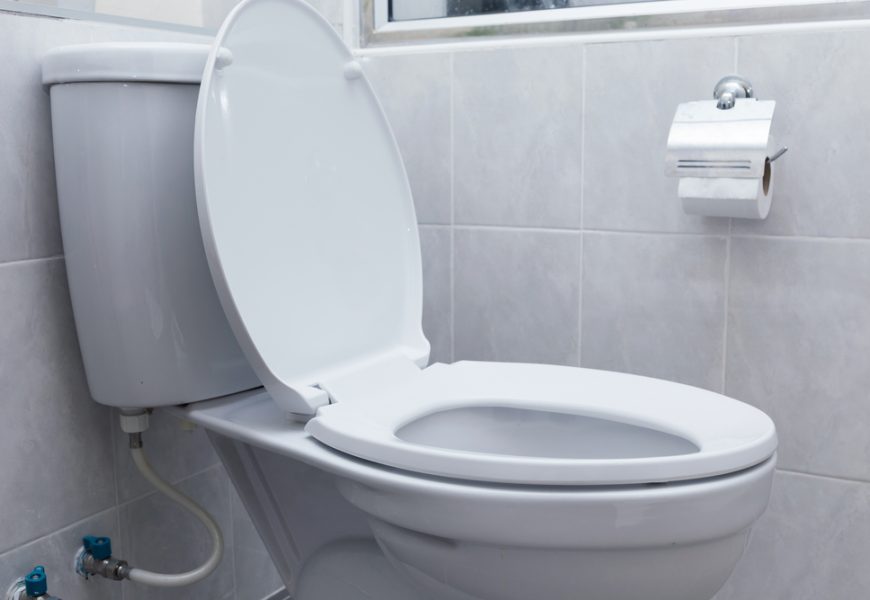Most people don’t think twice about their bowel movements, but your poop can reveal a lot about your overall health. From digestion and hydration levels to potential warning signs of serious illnesses, your stool is a key indicator of how well your body is functioning. Ignoring changes in color, consistency, or frequency could mean missing early signs of health issues that require attention.
Your body constantly communicates with you, and your stool is one of the clearest ways to understand what’s going on inside. Whether it’s changes in diet, stress levels, or underlying medical conditions, your poop can provide important clues. Here are some crucial reasons why you should monitor your bowel movements and what different changes might indicate about your health.
1. It Can Signal Digestive Health Issues
Your poop is a direct reflection of how well your digestive system is working. If you frequently experience constipation, diarrhea, or irregular bowel movements, it may indicate an issue with digestion. Conditions like irritable bowel syndrome (IBS), food intolerances, or even infections can cause major disruptions to your stool patterns. Inconsistent bowel habits can also lead to discomfort, bloating, and an inability to properly absorb nutrients. If you notice frequent changes in your stool, it’s a good idea to evaluate your diet and seek medical advice if symptoms persist.
2. Changes in Color May Indicate Nutrient Absorption Problems
Healthy stool is typically brown due to bile from the liver, but variations in color can indicate underlying issues. Pale or clay-colored stool may be a sign of bile duct obstruction or liver problems, while yellow stool could suggest fat malabsorption. Green stool might result from rapid food transit through the intestines, often due to stress or digestive disorders. On the other hand, black stool could be a sign of internal bleeding, requiring immediate medical attention. By observing the color of your stool, you can detect early warning signs of digestive and metabolic disorders.
3. Blood in Stool Could Be a Sign of a Serious Condition
Seeing blood in your stool can be alarming and should never be ignored. Bright red blood may indicate hemorrhoids or minor anal tears, but darker blood can signal bleeding in the upper digestive tract. Conditions like peptic ulcers, Crohn’s disease, or even colorectal cancer can cause internal bleeding that appears in stool. If you notice persistent blood, along with symptoms like fatigue or unexplained weight loss, it’s crucial to consult a doctor immediately. Early detection of these issues can lead to better treatment outcomes and improved overall health.
4. It Reflects Your Hydration Levels
The consistency of your stool is a direct indicator of how well-hydrated you are. Hard, dry stool often means you’re dehydrated, which can lead to constipation and discomfort. On the other hand, loose, watery stools may suggest excessive water loss or infections like food poisoning. Drinking enough water helps keep bowel movements regular and ensures waste moves smoothly through the digestive tract. If you often struggle with constipation, increasing your water intake and consuming more fiber-rich foods can help promote better digestion and stool consistency.
5. Unusual Smell May Indicate Infection or Malabsorption
While poop naturally has an odor, an unusually strong or foul-smelling stool could be a sign of an underlying health issue. Digestive infections, such as those caused by bacteria or parasites, can lead to stools that smell particularly bad. Malabsorption disorders, like celiac disease or lactose intolerance, may also cause stools to have an unusually strong odor due to undigested food passing through the intestines. If you notice a persistent, foul smell that doesn’t improve with dietary changes, it could be worth investigating further with a healthcare provider.
6. Floating Stool Can Suggest Poor Fat Absorption
Stool that consistently floats rather than sinks may indicate malabsorption, particularly of fats. This can be caused by conditions like pancreatic insufficiency, where the pancreas doesn’t produce enough digestive enzymes. Floating stool is often greasy, foul-smelling, and difficult to flush, which can be a sign of celiac disease or gallbladder problems. Since fat is essential for vitamin absorption, poor fat digestion can lead to deficiencies in fat-soluble vitamins like A, D, E, and K. If you frequently experience floating stools, it’s best to check with a doctor to rule out serious digestive issues.
7. Frequent Diarrhea Can Lead to Nutrient Deficiencies
Chronic diarrhea can prevent your body from absorbing essential nutrients, leading to deficiencies in key vitamins and minerals. Conditions like Crohn’s disease, ulcerative colitis, or food allergies can cause long-term diarrhea, affecting overall health. The loss of electrolytes, such as potassium and sodium, can lead to dehydration, weakness, and dizziness. Additionally, persistent diarrhea can impact gut bacteria, leading to an imbalance in the microbiome. If diarrhea lasts more than a few days or occurs frequently, it’s important to determine the underlying cause and address it.
8. Thin or Narrow Stools Could Signal a Blockage
If your stool suddenly becomes pencil-thin and stays that way for multiple bowel movements, it may indicate a blockage in the intestines. This can be caused by inflammation, polyps, or in some cases, colon cancer. Narrow stools result when something partially obstructs the colon, making it difficult for waste to pass normally. While occasional changes in stool shape can be harmless, persistent narrowing of the stool should be evaluated by a doctor. Early detection can help diagnose serious conditions before they progress.
9. Constipation Can Affect Your Overall Well-Being
Chronic constipation isn’t just uncomfortable—it can negatively impact your health in multiple ways. When stool remains in the intestines for too long, toxins can be reabsorbed into the bloodstream, leading to bloating and discomfort. Straining during bowel movements increases the risk of hemorrhoids and anal fissures, which can be painful. Additionally, constipation can make you feel sluggish and fatigued due to improper digestion and absorption of nutrients. Making dietary changes, staying active, and drinking plenty of water can help prevent constipation and promote regular bowel movements.
10. Mucus in Stool May Indicate an Infection
A small amount of mucus in stool is normal, but excessive mucus could be a sign of inflammation or infection. Conditions like irritable bowel syndrome (IBS), bacterial infections, or inflammatory bowel diseases (IBD) like Crohn’s disease and ulcerative colitis can cause increased mucus production. If mucus is accompanied by blood, diarrhea, or abdominal pain, it’s a sign that something isn’t right in the digestive tract. Seeking medical advice can help determine the cause and prevent complications.
Final Thoughts
Your poop is more than just waste—it’s a valuable indicator of your overall health. Changes in stool color, consistency, smell, or frequency can signal digestive issues, infections, or even more serious conditions like colon cancer. While occasional changes are normal, persistent irregularities should not be ignored.
By paying closer attention to your bowel movements and making necessary lifestyle adjustments—such as improving your diet, staying hydrated, and managing stress—you can support better gut health and overall well-being. If you notice ongoing irregularities, pain, or alarming symptoms, consulting a doctor is the best step to ensure your health remains in check.




